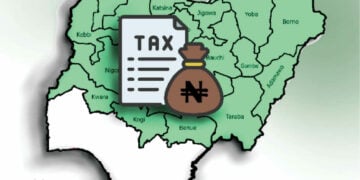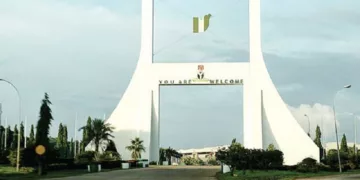A coalition of Nigerian Civil Society Organisations (CSOs) yesterday asked President Bola Tinubu to urgently halt the plan by Shell to divest from the Shell Petroleum Development Company of Nigeria Limited (SPDC) in the Niger Delta region of the country after decades of environmental degradation.
The coalition comprising the Social Action Nigeria, Civil Society Legislative Advocacy Centre (CISLAC), Africa Centre for Media and Information Literacy (AFRICMIL), Stakeholder Democracy Network, Civil Rights Council (CRC), Praxis Academy, Transparency International Nigeria, Transition Monitoring Group (TMG), and Policy Alert among others made the call at a press conference in Abuja.
Led by executive director of CISLAC, Auwal Musa Rafsanjani the coalition also urged President Tinubu and National Assembly to put necessary regulatory and legislative mechanisms in place to ensure that Multinational Companies/IOCs operating in the country give account of their stewardship before existing or divesting their investments.
Rafisanjani said they have sent copies of the petition to President Tinubu, senate president, Godswill Akpabio and speaker of the House of Representatives, Hon Abbas Tajudeen for necessary regulatory and legislative measures.
According to him, the Niger Delta, as many are aware, has borne the brunt of environmental degradation and social injustices for decades as a direct consequence of the oil exploration and production activities in the region.
Rafisanjani said the planned divestment by Shell, without a comprehensive resolution of these long-standing issues, poses an unacceptable risk to the region’s ecological integrity and the well-being of the consortium itself.
He said, “We are here as Civil Society to ensure that this country is not used and dumped by the multinational corporations who have continued to destroy not only the environment, even human beings and the livelihood of the people especially in the Niger Delta.”
In his remarks, programmes coordinator, Social Action Nigeria, Isaac Botti, insisted that the ongoing campaign is for the Nigerian government to develop a very robust divestment process for all multinational corporations that are based in Nigeria.
He said, “It is important for us to note that it is not only Shell that will be leaving Nigeria or divesting investments in Nigeria. As the world is looking at energy transition or transiting from fossil fuels to clean energy, a lot of divestment will take place and if that happens, what we are saying is there is a need to have an institutionalised process that helps to manage divestment whenever they come up with their plans, firstly, such that it is responsible, and accountable.
“So, oil companies or oil multinationals in Nigeria should not just feel that after years or decades of environmental pollution, destruction of livelihood and ecosystem in the Niger Delta in Nigeria will be pardoned just all in the name of divestment. Something needs to be done.”
On his part, executive director of Praxis Academy, Jaye Gaskia stressed that: “this is about the country and all of us, environmental issues do not have boundaries. Environmental devastation may directly impact on a particular community but the boundaries is far and wide.”
“The destruction that is happening tomorrow groundwater is across Nigeria even across the borders of Nigeria. We should also understand something which is why we are here. It looks like the more the campaign to hold the fossil fuels companies responsible for the damage to the environment and particularly for global warming, the more they are trying to also make transition to divest or transition from fossil fuel energy company into renewables, they are actually investing in renewables,” he said.





